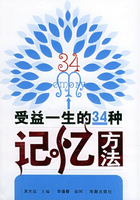MORAL PRINCIPLES UNDER THE ANCIENT REGIME.
The Court and a life of pomp and parade.
A military staff on furlough for a century and more, around a commander-in-chief who gives fashionable entertainment, is the principle and summary of the habits of society under the ancient régime. Hence, if we seek to comprehend them we must first study them at their center and their source, that is to say, in the court itself.
Like the whole ancient régime the court is the empty form, the surviving adornment of a military institution, the causes of which have disappeared while the effects remain, custom surviving utility.
Formerly, in the early times of feudalism, in the companionship and simplicity of the camp and the castle, the nobles served the king with their own hands. One providing for his house, another bringing a dish to his table, another disrobing him at night, and another looking after his falcons and horses. Still later, under Richelieu and during the Fronde,[1] amid the sudden attacks and the rude exigencies of constant danger they constitute the garrison of his lodgings, forming an armed escort for him, and a retinue of ever-ready swordsmen. Now as formerly they are equally assiduous around his person, wearing their swords, awaiting a word, and eager to his bidding, while those of highest rank seemingly perform domestic service in his household.
Pompous parade, however, has been substituted for efficient service;they are elegant adornments only and no longer useful tools; they act along with the king who is himself an actor, their persons serving as royal decoration.
I. Versailles.
The Physical aspect and the moral character of Versailles.
It must be admitted that the decoration is successful, and, that since the fêtes of the Italian Renaissance, more magnificent displays have not been seen. Let us follow the file of carriages which, from Paris to Versailles, rolls steadily along like a river. Certain horses called "des enragés," fed in a particular way, go and come in three hours.[2] One feels, at the first glance, as if he were in a city of a particular stamp, suddenly erected and at one stroke, like a prize-medal for a special purpose, of which only one is made, its form being a thing apart, as well as its origin and use. In vain is it one of the largest cities of the kingdom, with its population of 80,000 souls;[3]
it is filled, peopled, and occupied by the life of a single man; it is simply a royal residence, arranged entirely to provide for the wants, the pleasures, the service, the guardianship, the society, the display of a king. Here and there, in corners and around it, are inns, stalls, taverns, hovels for laborers and for drudges, for dilapidated soldiers and accessory menials. These tenements necessarily exist, since technicians are essential to the most magnificent apotheosis. The rest, however, consists of sumptuous hotels and edifices, sculptured fa?ades, cornices and balustrades, monumental stairways, seigniorial architecture, regularly spaced and disposed, as in a procession, around the vast and grandiose palace where all this terminates. Here are the fixed abodes of the noblest families; to the right of the palace are the h?tels de Bourbon, d'Ecquervilly, de la Trémoille, de Condé, de Maurepas, de Bouillon, d'Eu, de Noailles, de Penthièvre, de Livry, du Comte de la Marche, de Broglie, du Prince de Tingry, d'Orléans, de Chatillon, de Villerry, d'Harcourt, de Monaco; on the left are the pavilions d'Orléans, d'Harcourt, the h?tels de Chevreuse, de Babelle, de l'H?pital, d'Antin, de Dangeau, de Pontchartrain - no end to their enumeration. Add to these those of Paris, all those which, ten leagues around. At Sceaux, at Génevilliers, at Brunoy, at Ile-Adam, at Rancy, at Saint-Ouen, at Colombes, at Saint-Germain, at Marly, at Bellevue, in countless places, they form a crown of architectural flowers, from which daily issue as many gilded wasps to shine and buzz about Versailles, the center of all luster and affluence. About a hundred of these are "presented each year, men and women, which makes about 2 or 3,000 in all;[4] this forms the king's society, the ladies who courtesy before him, and the seigniors who accompany him in his carriage; their hotels are near by, or within reach, ready to fill his drawing room or his antechamber at all hours.















